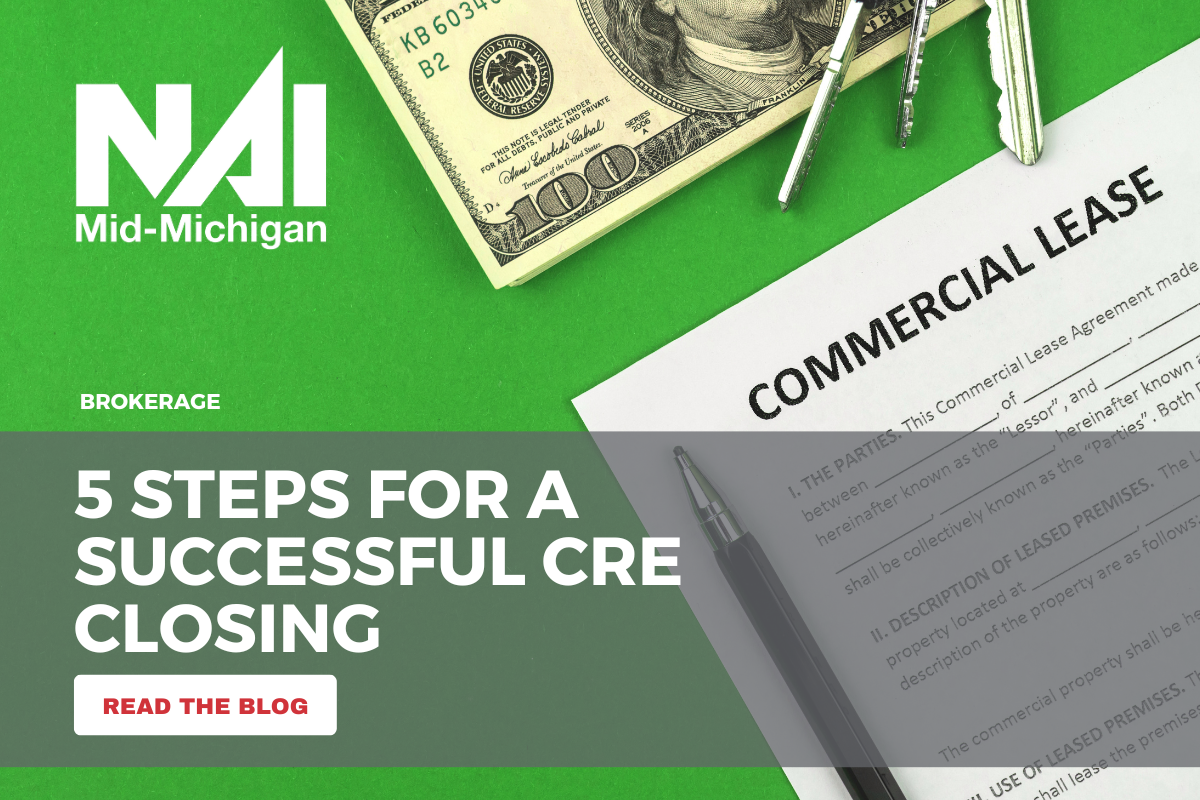Closing on a commercial real estate property can be a slow and complex process, involving tons of paperwork, many conversations and follow-ups, and careful financial analysis. Depending on your financial lender and other partners in the sale, this process can take 2-3 months to complete. But, it can take even longer if you or the other party misses a crucial piece of the puzzle. Here are a few steps to keep in mind when closing on your CRE property to protect yourself and keep the process moving.
Document the Purchase Agreement
The key to a smooth CRE sale is clear communication with all parties involved. One of the best ways to accomplish this is to ensure that your purchase agreement is thoroughly documented. Make sure to list out all business and legal agreements and any potential issues. Clearly indicate the initial deposit amount, and the time some or all of it becomes non-refundable. It’s a good idea to work closely with your CRE advisor to ensure that you have covered all of your bases with the purchase agreement as it is one of the most important steps in the process.
Register for Title Insurance
Imagine getting most of the way through your closing process just to discover that the property has an undisclosed lien (such as unpaid utilities, mortgage payments, taxes, and or contractor fees that were due and payable prior to the date of the title policy).
Or an inaccurate property description or defect which prevents you from getting a new mortgage or leasing the property easily. Issues with a property’s title can quickly derail a CRE transaction and waste your time and money. Purchasing title insurance protects both the property buyer and the mortgage lender from financial losses caused by these title issues.
Insure the Property
Most financial lenders require CRE buyers to obtain property insurance to ensure that they are financially covered if the building is destroyed during the sale process. It’s essential to obtain a property insurance policy that covers the building and its equipment from theft, fire, flooding or other weather damage through the sale process and beyond. If you need assistance finding a local property insurance partner, reach out to our NAI Mid-Michigan team for a recommendation.
Complete Third-Party Reviews
This portion of the closing process is often referred to as a due diligence period. As a buyer, it is your opportunity to ensure that the property meets your expectations and quality standards before final closing occurs, and that nothing will slow down or prevent the sale. Final reviews typically include one or more site walk-throughs, an environmental report to ensure there are no hazardous spills or materials on site, a structural inspection, an interior inspection, a mechanical and electrical inspection, and a pest inspection.
Work with the Experts
After these steps have been completed, your attorney and CRE agent will guide you through the final stages of the closing process, including the final transfer of the property’s title. Working with professionals for the closing process can help you ensure that you haven’t overlooked any key elements that could cause future logistical headaches or open yourself up to financial loss or liability.
Contact us today to find out more about how our team can guide you through your next CRE closing.

